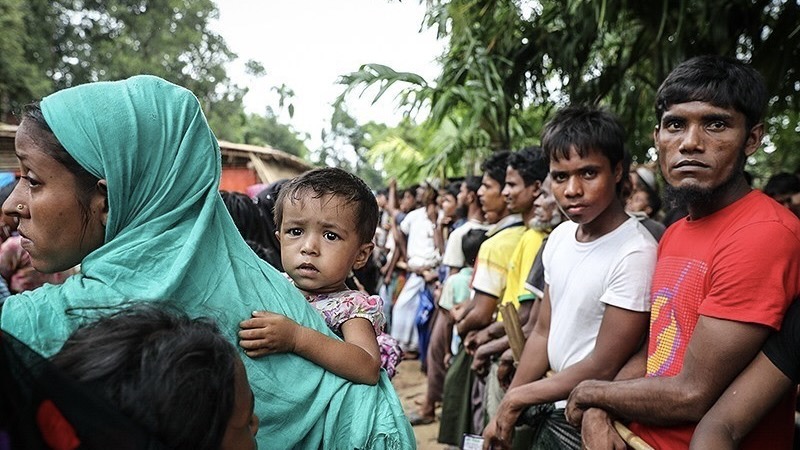Fear of hunger and deprivation looms large in the minds of the thousands of Rohingyas living in refugee camps in Bangladesh’s Cox Bazar after the United Nations announced, for the first time in nearly six years, that they will have to cut down on lifesaving food assistance starting from March 1.
“This is a devastating blow to the Rohingya and an equally devastating blow to the humanitarian community,” said Domenico Scalpelli, World Food Program (WFP) country director in Bangladesh. “With other critical services already dwindling, the repercussions of the ration cut—even if just two dollars—will be dire.”
With a shortage in funds of around USD $125 million, the WFP will reduce its General Food Assistance voucher from USD $12 to USD $10 per person on a monthly basis, the UN has stated.
Nearly one million Rohingya have been receiving food assistance vouchers—valued at USD $12 per person per month—from the WFP since 2017. More than 740,000 Rohingya fled Myanmar as a result of increasing persecution, the largest number settled in Bangladesh.
Given that there are limited opportunities for employment in Bangladesh’s asylum camps, a large number of Rohingya refugees have been relying entirely on humanitarian assistance to meet their food and other essential needs.
This most recent cut in humanitarian assistance has come as an unwelcome shock. Many observers have stressed that if this reduction in food aid comes to pass, it will lead to disastrous consequences.
According to the WFP, 45% of Rohingya families are not receiving sufficient amounts of food, and some 40% of children and pregnant women are facing acute anemic conditions. One in eight Rohingya children is acutely malnourished, the statement released by the WFP added.
“With each ration cut, malnutrition will certainly rise. With each ration cut, families will increasingly resort to dangerous strategies to cope. Sadly, women, adolescent girls and children will be the worst affected. We must do everything possible to keep the vital humanitarian assistance they depend on intact,” Scalpelli said.
Many activists complain that each year the international community’s interest in the issue of Rohingya repatriation has been waning, with the increased number of geopolitical crises. They say that donors are now sending their funds to other areas, which are described as more pressing for the international community.
However, there is still no end in sight to the plight of the Rohingya. Their desire to make it out of this helpless and vulnerable situation has forced a large number of Rohingya to try and escape. In 2022 alone, more than 3,500 Rohingya tried to undertake risky journeys to other countries through the Bay of Bengal and Andaman Sea, according to data from the UNHCR.
Refugee activists and residents of camps fear that food aid cuts will worsen the lives of those inside the camps, at a time when cost of food and essential items is skyrocketing in Bangladesh, especially given that the amount currently being distributed is already insufficient.





